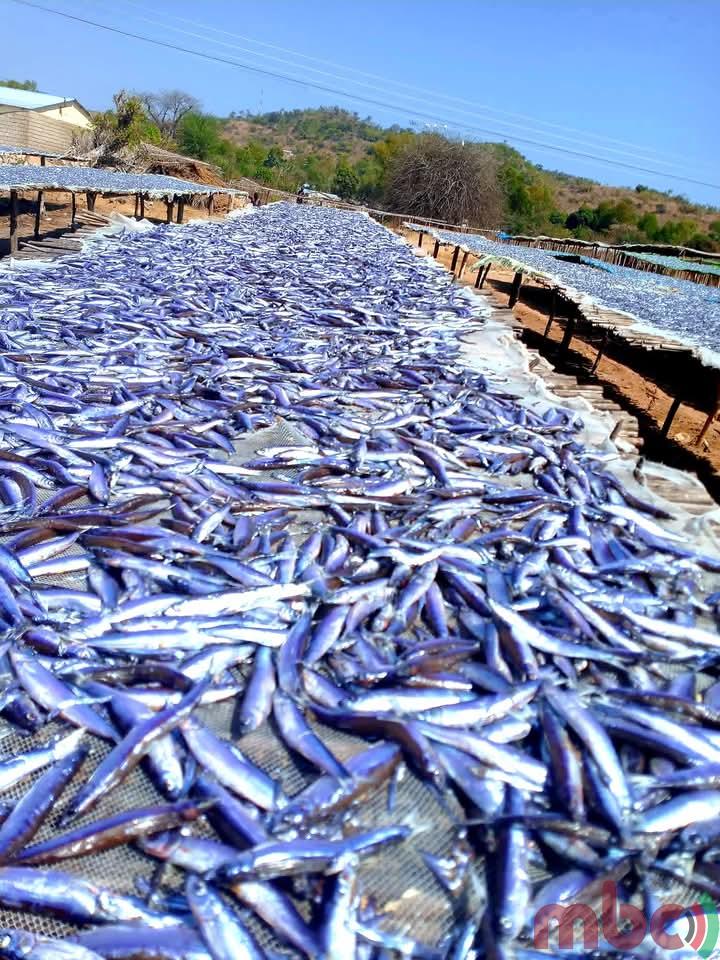Nkhata Bay, famous for its blue waters and fishing camps has long been the heartbeat of Malawi’s fish trade. From sunrise to sunset, traders haul, dry and ferry tonnes of Usipa and other species across the country, fueling an economy that sustains thousands of livelihoods.
But behind this booming business lies a silent and dangerous practice that could be poisoning unsuspecting consumers.
During recent visits to fishing camps across the district, our investigation uncovered that some fish processors are secretly using Actellic, a powerful pesticide meant for killing weevils in grain storage, to preserve Usipa during drying.
They argue it is a practical solution to prevent spoilage when supply surpasses demand.
“The fish can last up to one or even two years without losing its quality,” one trader said confidently, insisting the method was a business necessity.
At Sanga Fishing Camp locally known as Court in the area of Traditional Authority Makhambila, the practice appears widespread. Traders openly admit to mixing the chemical with water and sprinkling it over fish as it dries under the sun.
“We’re in the Usipa season and supply is high while demand is low,” one woman, who requested anonymity, explained. “We dilute Actellic in about 20 liters of water and apply small amounts. We believe it is safe and it helps us store fish for months or even sell it the same day if customers show up.”
Another trader from Mzuzu shared her strategy.
“Business is slow now. I buy in bulk, treat the fish with Actellic, and keep it in my warehouse. By December, when Usipa becomes scarce, I will sell it in Blantyre and Lilongwe at better prices.”
But here is the toxic truth. Health experts warn that the short-term profit could come at a deadly cost.
Nutritionist Cecilia Mhango from Nkhata Bay described the practice as highly dangerous, noting that Actellic contains potent chemicals that can remain in fish even after washing or cooking.
“Actellic is not safe for food,” Mhango cautioned. “It destroys essential nutrients, reduces protein quality, and damages vitamins such as B1, B2, and A. Even worse, it can turn healthy fats rancid, producing toxins harmful to the body.”
When informed of the findings, Acting Senior Chief Makhambila, Patrick Shaba, expressed shock and outrage.
“This is inhumane,” he said. “They are putting our lives in danger. This must not happen under any circumstances.”
He pledged to call an emergency meeting of the Area Development Committee (ADC) to identify and discipline those involved.
Health officials have echoed the warning. Christopher Singini, Health Promotion Officer for Nkhata Bay District, stressed that Actellic is strictly a pesticide and not a food preservative.
“Its use in fish drying poses serious health risks,” he said. “We urge all traders to prioritize consumer safety over profits.”
The District Fisheries Officer, Dellings Kamenya, confirmed that using Actellic in fish processing is illegal and unsafe. He revealed that although the department had previously explored potential safe applications under laboratory conditions, the process required controlled concentrations and a mandatory two-week waiting period before consumption.
“Most traders cannot afford to wait that long, which makes the practice both unsafe and unacceptable,” Kamenya explained. “We recommend traditional preservation methods such as salting and proper drying which are effective, affordable and safe for everyone,” he said.
He added that his office plans to roll out awareness campaigns and train processors on safer preservation techniques.
Every year, tonnes of Usipa leave Nkhata Bay for markets in Lilongwe, Blantyre, and beyond feeding millions of Malawians. Yet few consumers know that the seemingly fresh, neatly packaged fish on their plates may have been doused in pesticide.
The economic desperation of traders, coupled with weak regulation and limited public awareness, has created a perfect storm where profit often outweighs health.
Until enforcement catches up, consumers may have no way of knowing whether their next meal of Usipa carries a hidden dose of poison.
By Evidence Banda, Nkhata Bay



